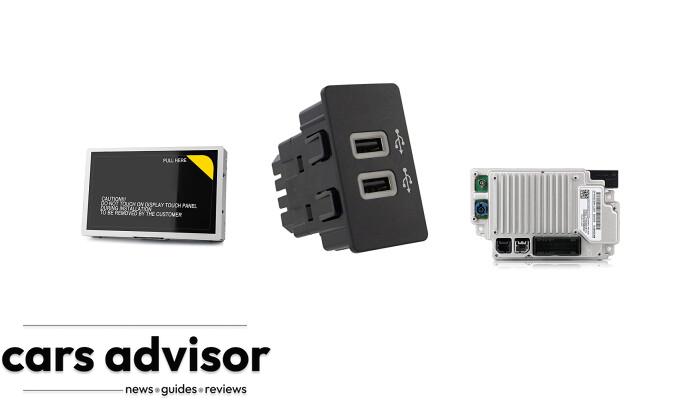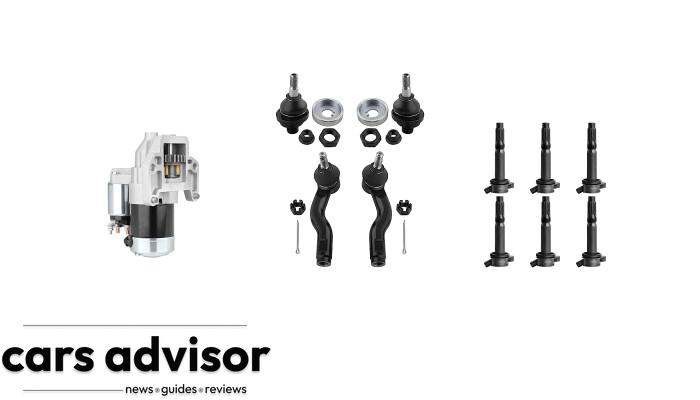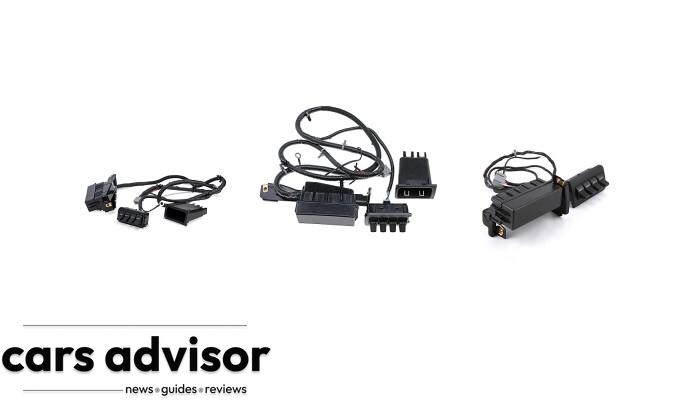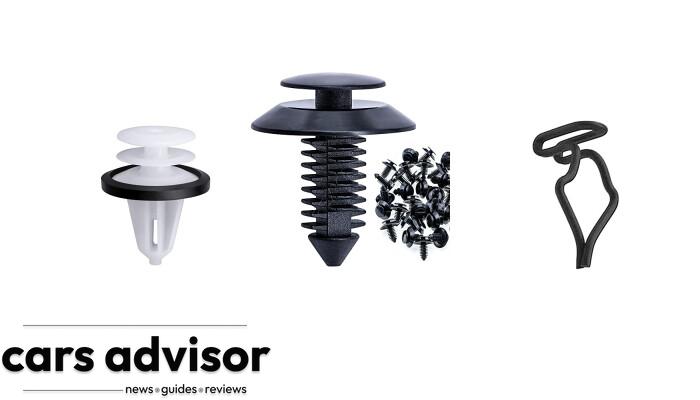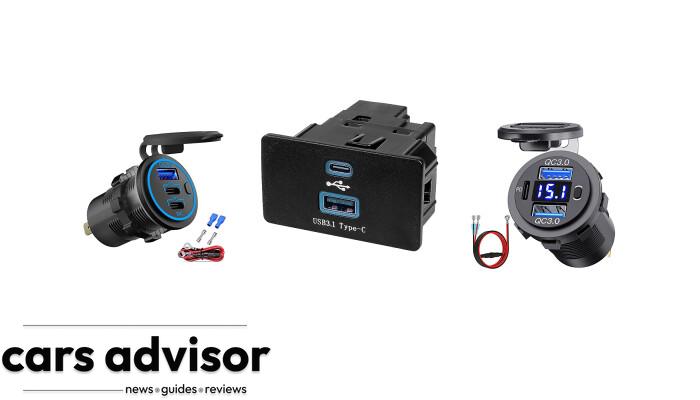Have you ever experienced the fear of getting gas and then your car not starting? It’s a paralyzing moment that can leave anyone feeling uneasy. What if there is something wrong with my car? Is it safe to drive? If you find yourself in this situation, don’t worry! You’ll be able to get back on the road safely by following the steps outlined below.
In this article we will discuss what could potentially cause your vehicle not to start after filling up at the gas station. We’ll also provide helpful information about how to solve this issue so you can prevent it from happening again in the future. Don’t worry–you won’t need an expensive mechanic or special tools to diagnose and fix the problem.
Finally, we will explore ways for drivers to stay safe when their cars fail unexpectedly, such as having emergency supplies available just in case. This article provides valuable tips to help keep both you and your vehicle secure even when problems arise on the road.
Vehicle Diagnosis Basics
Diagnosing a car can be tricky. You need to know the basics before getting started. The first place to start is looking at the fuel system. This includes checking the fuel pressure, spark plugs and wires, fuel filter, fuel tank, gas pedal, and any other parts related to it. If something doesn’t seem right with these components or if there’s an issue with the gas station you filled up from, this could explain why your car won’t start after getting gas.
Next check out the ignition system: coil pack, check engine light, charcoal canister (if applicable), throttle body, raw fuel line, dead battery and timing belt. If there are any issues here they would likely cause your vehicle not to turn over when you try starting it after refueling. A malfunctioning spark plug wire or ignition coil may also be responsible for your problem as well as a faulty evap purge valve or fuel rail. Check all of these components carefully and make sure everything looks good before moving on to other possible causes of your issue.
Ignition System Components
Next, let’s take a look at the ignition system components. The main part of this system is the ignition switch. It controls the flow of electricity to your vehicle’s spark plugs. If there is an issue with it, then your car won’t start after getting gas. To determine if the problem lies in the switch, you should check for power going into and out of it when turning on the key. There are also other parts in this system that may need to be examined such as fuses, wires, and coils which can be checked by a qualified mechanic.
In summary, if your car won’t start after getting gas, it could mean there is an issue with one or more of its ignition system components. Be sure to have these inspected by a professional auto technician to ensure safe operation before driving again.
Fuel-Delivery System Components
When it comes to car troubles, the fuel-delivery system is a key component. Just like your body needs energy to function properly, so does your car! But what makes up this important part of your vehicle? Let’s take a look at some of the major components:
- Fuel Pump: The fuel pump sends gasoline from the gas tank into the engine combustion chamber. This allows for a steady flow of fuel to power your car.
- Purge Valve: This valve helps get rid of any excess fuel vapor in the gas tank by releasing it out through an exhaust pipe. It prevents buildup that can cause clogs and other problems with performance.
- Gas Tank & Cap: The gas tank holds all the required fuel for powering your vehicle and regulates how much gets sent to the engine when needed. The cap seals off the top of the tank to prevent leaks or spills while driving.
These are just some of many parts that make up a typical fuel-delivery system on most cars today. If something isn’t working correctly—like if you’re not getting enough power after getting gas—it could be due to a faulty component within this system. In order to fix it, you need to pinpoint exactly which one is malfunctioning and replace it accordingly.
Battery And Charging System Issues
If your car won’t start after getting gas, it could be a problem with the battery or charging system. A dead car battery is one of the most common causes of cars not starting. It’s important to check the condition of your car battery regularly and make sure that it has enough charge. You can either have an auto repair shop test the battery or use a voltmeter at home to measure its voltage. If you find that it isn’t fully charged, you’ll need to recharge it. This can usually be done by connecting jumper cables from another vehicle to yours. However, if this does not work then there may be an issue with your charging system which will require further diagnosis by a qualified mechanic. In some cases, replacing the entire battery may be necessary in order for your car to start again.
Engine Temperature Problems
If your car won’t start after getting gas, it could be due to engine temperature problems. It’s important to check the engine light and listen for any unusual noises when you try to crank the engine. If the engine light is on or if there are strange sounds coming from the vehicle, then it’s likely that something is wrong with the engine temperature. This can cause poor performance and prevent your car from starting.
To diagnose this problem, take your car to a mechanic as soon as possible so they can inspect it thoroughly. They will check all of the components related to engine temperature in order to determine what needs repairs or replacement parts. The mechanic may also need to reset codes or recalibrate sensors in order to get your car running properly again. Follow their instructions carefully and make sure to ask questions if you don’t understand anything about how to start the engine safely once repairs have been completed.
Compression Problems
What if the engine won’t start after getting gas? It could be a compression problem. In some cases, there may not be enough power to start the engine. This is usually caused by faulty fuel or a bad injector that needs to be replaced.
| Faulty Fuel | Bad Injector |
|---|---|
| Could cause insufficient power for starting | Needs to be replaced |
| Can reduce the efficiency of an engine | Can lead to cylinder damage |
| Need to depress the gas pedal multiple times | Can cause excessive noise when running |
A mechanic should check if there are any issues with your vehicle’s fuel and air intake system. If they find something wrong, they can replace it quickly so you don’t have any more problems with your car starting. Additionally, they will need to depress the gas pedal multiple times in order to ensure that all parts are working properly and no further repairs are needed.
Having an experienced auto-mechanic look at your car before attempting any repairs yourself is always advised as this can help avoid costly repair bills later on down the line. Plus, having them take care of any potential compression problems now will save you from having bigger issues in the future!
Bad Spark Plugs Or Wires
If your car won’t start after getting gas, bad spark plugs and wires could be to blame. Spark plugs are located in the cylinder head of the engine and they ignite the air-fuel mixture that powers the motor. If these become worn out or corroded, they won’t produce enough spark to fire up the engine. The same goes for spark plug wires which can wear out over time due to heat and vibration from driving.
To determine if this is an issue with your vehicle, you’ll need to do a visual inspection as well as remove some components such as the distributor cap and rotor. Then look closely at each component for signs of corrosion or damage. You may also want to check for any loose connections between them, which could cause problems starting the car too. If you find any issues, it’s best to get replacements immediately so you don’t end up stranded on the side of the road again!
Clogged Air Filter
As luck would have it, the same problem that was causing your car to not start after getting gas could be due to a clogged air filter. The air filter is an important part of your engine’s system and helps keep dirt and dust out of the intake manifold. If the air filter becomes clogged or dirty, it can prevent enough air from entering the combustion chamber, resulting in poor performance and possibly even stalling when you try to crank up the engine. To check if this might be what’s wrong with your car, open up the hood and look for any signs of dirt or debris around the air filter housing. You may also want to remove the old filter and inspect it for any blockages or obstructions.
If you find that your air filter is indeed blocked, then replacing it should remedy the issue with starting your car after filling up with gas. However, you should also take a closer look at other parts such as spark plugs, fuel injectors, distributor caps, and especially checking a clogged fuel filter as well. Taking care of these components will help ensure reliable operation so that next time you stop for gas you won’t have any trouble cranking up again!
Faulty Fuel Pump Relay Switch
After making sure the air filter was not clogged, you may want to check your fuel pump relay switch. This can be found under the hood of most cars and is responsible for turning the fuel pump on when it’s needed. If this switch has become faulty or worn out, then it won’t turn on properly and will prevent your car from starting after getting gas.
To fix this issue, you’ll need to replace the fuel pump relay switch with a new one. It’s best to do this as soon as possible so that you don’t risk having any further problems with your car and so that you can get back on the road safely. Make sure to purchase a high-quality part that matches up with your make and model of vehicle in order to ensure proper installation and functioning. Once everything is set up correctly, try starting your car again – if all goes well, you should have no problem!
Dirty Fuel Injectors
Have you ever felt like your car has a mind of its own? Well, if it won’t start after getting gas, then that might be the case. After all, something is preventing it from running! One culprit could be dirty fuel injectors.
Fuel injectors are responsible for delivering fuel to the engine in order for it to run properly. If these become clogged with dirt or debris, they can prevent your car from starting. Here’s a list of 3 signs of bad injector: -Difficulty starting the vehicle -Rough idling or stalling while driving -Low fuel efficiency
If any of these symptoms sound familiar, then you might have an issue with your fuel injector. In most cases, a simple cleaning will do the trick and get your car back up and running. However, if this doesn’t help, then there may also be an underlying problem with the fuel pump which should be checked out by a professional technician.
Crankshaft Position Sensor Malfunction
If you’ve filled up your car with gas and now it won’t start, there could be a problem with the crankshaft position sensor. This component helps the engine to ‘crank’ or start. If it isn’t working properly, then your car won’t turn on. You’ll need to have a mechanic take a look at this part of your car in order for them to diagnose and fix any problems that may exist.
In some cases, the crankshaft position sensor may be malfunctioning due to dirt or debris buildup around its components. The only way to determine if this is true is by having an experienced technician inspect the vehicle thoroughly. They can also check other parts like spark plugs or fuel injectors which might be causing issues as well. Hopefully, they will identify and correct the issue quickly so that you can get back out on the road safely!
Faulty Starter Motor
It was a nightmare! After getting gas, my car just wouldn’t start. I couldn’t believe it – what had gone wrong? My heart raced as I realized that the starter motor must have been at fault.
I quickly checked the engine and found out that sure enough, the starter motor wasn’t working correctly. All of my worst fears had come true. It seemed like there was no escape from this nightmare of mine; all thanks to the faulty starter motor!
The only option left for me was to get help from an experienced mechanic who could repair or replace the damaged starter motor. I knew it would be expensive but anything was better than being stranded in such a helpless situation with nothing else to do! With some luck, I managed to find a reliable mechanic who fixed up my starter motor within minutes and got my car back on track again.
Clogged Catalytic Converter
If your car won’t start after getting gas, a clogged catalytic converter could be the cause. A catalytic converter is an important part of the vehicle’s exhaust system. It helps reduce harmful pollutants in exhaust gases by converting them into less toxic substances. If it becomes clogged, it can prevent fuel from reaching the engine and lead to engine failure or other problems.
The most common signs that your catalytic converter is clogged are poor acceleration and decreased fuel economy. Your car may also produce loud noises when accelerating, have difficulty idling, or stall out completely while running. You should take your car to a mechanic if you experience any of these symptoms so they can diagnose the issue more accurately and recommend proper repairs.
Vacuum Leak Detection
The clogged catalytic converter was a major component of the car’s problem, but it could have been caused by something else entirely. After removing and replacing the converter, it’s time to look for other causes of why your car won’t start after getting gas. One cause that is often overlooked is vacuum leaks.
Vacuum leaks can be tricky to detect because they are typically quite small and hard to find. The best way to check for them is with a smoke machine or an ultrasonic detector. A smoke machine injects vapor into the engine’s vacuum system which will then show up any leaks in hoses, gaskets, or seals. An ultrasonic detector uses sound waves to pinpoint any areas where air might be leaking from the engine systems.
| Visual Representation | Description | Solution |
|---|---|---|
| Smoke Machine | Injects Vapor | Find Leaks |
| Ultrasonic Detector | Sound Waves | Pinpoint Air |
It’s important to find these small vacuum leaks as soon as possible so that you don’t run into issues down the road. If left unchecked, these tiny spaces where air is escaping can lead to bigger problems like poor fuel economy and even “vapor lock.” So make sure you take the proper steps now to ensure your car runs properly in the future!
Damage To Computerized Control Module
If the car still won’t start after getting gas, one possible cause may be damage to the computerized control module. This system controls many of the functions in your car, including the power needed to start it. If this component is damaged or malfunctioning, it could prevent the ignition from turning on properly.
To find out if there’s an issue with this system, you’ll need to have a mechanic run a diagnostic test. They will be able to determine whether any components are not working correctly and let you know what needs to be done to fix them. Once they’ve finished their work, they should also check that all other systems in the vehicle are functioning as intended. With these steps completed, you can get back on the road safely and confidently again!
Frequently Asked Questions
How Can I Prevent My Car From Not Starting After Getting Gas?
First off, it’s important to check that the fuel cap is on tightly. This ensures that no air gets into the system and prevents any vapor lock or fuel loss. Additionally, make sure that all of the engine hoses are in good condition and free from cracks or leaks. If they’re old or worn out, replace them as soon as possible. Lastly, ensure that your spark plugs and filters are clean so that your car has enough power to start properly.
Taking these precautions will help keep your car running smoothly and reduce the chance of its stalling when you get gas. Regular maintenance will also extend the life of your vehicle and make sure it runs at peak performance for years to come!
What Should I Do If My Car Still Won’t Start After I Have Checked All Of The Components Listed In The Article?
The first thing you should do is make sure all of the connections are secure and that there are no loose wires or hoses. Check each one carefully as even small issues like this can lead to bigger problems down the line. If everything seems okay then you might want to consider getting a diagnostic scan done on your vehicle by a professional mechanic. This will help identify any underlying issues with your engine or other systems which could be causing your car not to start properly. They will also be able to provide advice on how best to fix these problems so that they don’t occur again in the future.
In addition, if you’re having trouble starting your car, it never hurts to double check things like gas levels, oil levels and spark plugs for wear-and-tear. Taking care of basic maintenance tasks can go a long way towards preventing major repairs from being necessary down the road – saving both time and money in the long run!
What Other Potential Causes Could Be Preventing My Car From Starting?
If your car won’t start after you’ve checked all the parts that were mentioned in an article, there could be other potential causes. It’s important to look at every possible cause of why it isn’t starting so that you can get back on the road safely and quickly.
Here are a few things to consider:
- Check for loose connections or wiring issues
- Make sure battery terminals are clean and secure
- Look for signs of fuel system contamination
- Confirm that all spark plugs have adequate voltage
- Test if the starter motor is working properly
Taking the time to go through each one of these steps will help determine what might be preventing your vehicle from starting. If any of these components are not functioning correctly, they may need to be replaced or repaired before the car will turn over again. In addition, checking your owner’s manual or visiting a trusted mechanic can provide further insight into troubleshooting additional problems with your vehicle.
Are There Any Maintenance Tips I Should Be Aware Of To Keep My Car From Not Starting After Getting Gas?
Having a car that won’t start after getting gas can be a huge hassle. But, there are some maintenance tips you should know about to help prevent this from happening again in the future. Here’s what you need to do:
- Make sure your fuel filter is clean and free of debris or blockages.
- Check the spark plugs for any wear and tear or damage, as well as making sure they have the correct gap size installed.
- Ensure all connections between battery cables, ignition coils and other electrical components are tight and secure.
These simple steps will help keep your car running smoothly and reduce the chances of it not starting after filling up with gas. It’s also important to regularly check your engine oil levels too – if these become low then it can cause more issues than just an inability to start! Plus, always make sure to use high-quality gasoline when refilling your tank; otherwise, dirt particles could clog up vital parts of the engine which would lead to problems with starting the vehicle.
Regularly following these tips will ensure that your car runs reliably every time you get behind the wheel so you don’t have to worry about unexpected breakdowns due to lack of maintenance! Taking care of your vehicle doesn’t take much effort but goes a long way in keeping it running efficiently for years down the road.
What Is The Average Cost To Repair A Car Not Starting After Getting Gas?
According to a recent survey, the national median for repairing a car not starting after filling up was found to be around $200. However, it could be much higher or lower depending on the complexity of the problem. For instance, if there is an electrical fault in the fuel system then it could end up costing several hundred dollars due to labor intensive work that needs to be done by professionals. On the other hand, replacing a worn spark plug might only set you back less than fifty bucks – so it really depends on what kind of repair is necessary.
It’s important to note that preventive maintenance can go a long way in avoiding unexpected expenses like these down the road. Taking your vehicle in for regular check-ups will help identify potential problems before they become serious issues and keep your car running safely and efficiently so you don’t get stranded out on the open road!
Conclusion
It’s so frustrating when your car won’t start after getting gas. You may have already checked all of the components listed in this article, but it still won’t start. Don’t despair! There are a few other potential causes that could be preventing your car from starting up again. From dirty spark plugs to low fuel pressure, there are many things you can look into before having to take it into a mechanic for repairs.
You should also make sure that you’re following regular maintenance tips in order to prevent your car from not starting after getting gas. Ensure that you’re changing out the air filters and oil every 5-7 thousand miles, using premium gasoline whenever possible, and keeping an eye on any warning lights or signs that something might be wrong with your vehicle. Taking these precautions will help keep those pesky engine problems away and save you money in repair costs down the line.
Don’t let your car get stuck at the pump – take action today by checking out some of these potential causes and preventive measures outlined in this article. With just a little bit of effort, you can ensure that your car starts quickly each time without costly repair bills looming over your head.







